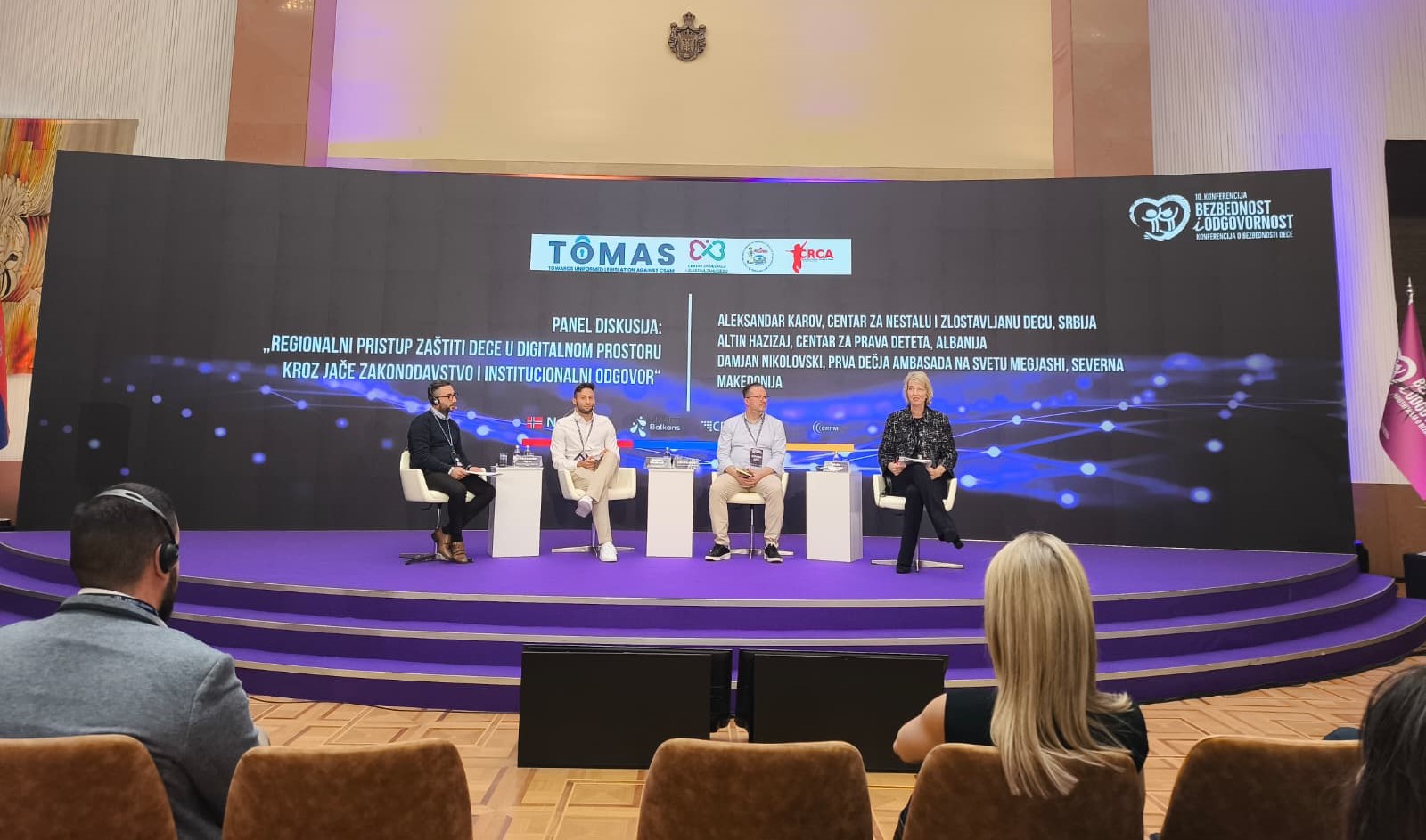CSAM and grooming must be legislated to ensure no children are left unprotected online
An open letter was sent to the European Parliament's Committee on Civil Liberties, Justice and Home Affair (LIBE) by Eurochild and the other 47 organisations part of ECLAG, the EU CSAM (child sexual abuse material) Legislation Advocacy Group.
Read the full letter below:
As a coalition of child rights and advocacy organizations, the ECLAG welcomes and appreciates the LIBE Committee Rapporteur’s draft report on the proposed regulation to prevent and combat Child Sexual Abuse. This is a particularly dense and technical file and we congratulate MEP Zarzalejos for his efforts to consult and work across many groups and political views in order to find a very strong and balanced opinion. As we can all agree, this is a critical file that will protect children as the most vulnerable members of our society. We look forward to working further with the rapporteur and the LIBE committee over the coming months. Below we outline our principal observations from reading the rapporteur’s draft report:
We welcome the rapporteur's support for keeping the full scope to the Regulation and allowing all threats to children online to be covered by the legislation. Known, unknown CSAM and grooming must all be legislated upon in order to ensure no children are left unprotected online.
We welcome the rapporteur’s careful attention to and elevation of risk assessment and risk mitigation, which crucially includes a voluntary detection scheme. We believe this is a vital part of the existing ecosystem and are pleased to see it introduced in the proposal. While we recognize the need for strong safeguards in this proposal, we believe that authorised voluntary detection should be treated like all other mitigation measures as it plays an important prevention role. The national coordinating authorities will have the technical knowledge required to approve voluntary detection. They will be able to quickly assess the situation and protect children without burdening jurisdictions and delaying action beyond what is necessary.
The Rapporteur has made a critical change by including the Victims' Consultative Forum. This inclusion is a huge step forward in ensuring inclusion of the voices of those with lived experience of childhood sexual violence, including on the assessment of technologies used to detect and remove CSAM and grooming. We would nonetheless welcome more concrete responsibilities and participation in decision-making for members of the Forum, notably through ensuring a seat for victims on the Management Board of the EU Centre,while guaranteeing the views of all children affected by this regulation are heard and taken into account within the EU Centre.
Across the Parliament we know that there is a strong will to ensure an effective and well-functioning as well as cost-efficient EU Centre. We appreciate the additions the Rapporteur has included to ensure this remains the case. We support and understand the vital nature of law enforcement cooperation with the EU Centre, and welcome the Rapporteur’s additional specifications on the nature and oversight of data sharing between the two agencies. Nevertheless, in order to ensure the effective independence of the Centre, we support measures aimed at ensuring that data shared between the organisations, in particular IT, meets clear criteria. An unintended consequence of such proximity could also be the disincentive, reticence or fear of victims and families to seek help. This is one reason why hotlines have long offered anonymous, non-law enforcement channels to report CSAM and solicitation.
One of the key pillars of this proposal is tech neutrality. This will ensure the regulation is futureproof and can address the fast evolving manifestations of child sexual abuse at scale for decades to come. The proposal will not remain this way if carve-outs are made for specific technologies. We all agree on the primary value of E2EE as a privacy, data and rights-protecting technology, and we do not want it to be prohibited or broken. However, limiting detection within E2EE to metadata leaves victims at risk and directly infringes their rights to protection and justice. We cannot allow E2EE to become even more of a safe haven for exchange of criminal content; instead we should leave this regulation open for innovation of the most cutting edge privacy-preserving tools, while ensuring strong safeguards. Experts agree that this is possible in the coming years, and we need to ensure the regulation provides the basis for this.
At the core of this regulation is protecting victims from further victimisation and trying to prevent this crime from happening. While we welcome many aspects we think it could be further strengthened to ensure the victims who may reside outside of the EU are able to obtain support from the EU Centre to have any of their material hosted or accessible in the EU removed. Additionally, the EU Centre will be a hub for best practice sharing and more could be done to ensure that victims support is one of the areas covered. The Regulation must ensure that victims are able to receive on an opt-out basis information about the instances of dissemination of CSAM. The Regulation should ensure that victims are not further victimised in contact with the EU Centre or Coordinating Authorities by ensuring support will be offered and victims will be handled in a trauma-informed manner, ensuring their needs are met and rights guaranteed in line with other EU legislation.
Building for safety-by-design is a vital part of prevention efforts that combine the use of technology and human intervention. In this regard, we welcome the Rapporteur’s emphasis on empowering parents and caregivers, coordinating education and awareness across the Union, and ensuring age-appropriate access to services that offer age-appropriate and accessible reporting mechanisms. In this sense, we also welcome the additional consideration given to the role of hotlines in the existing ecosystem and would love to see this expanded further to include missing children hotlines.
We again thank the Rapporteur MEP Zarzalejos and look forward to continued conversations in order to ensure a strong regulation.
Further reading:





